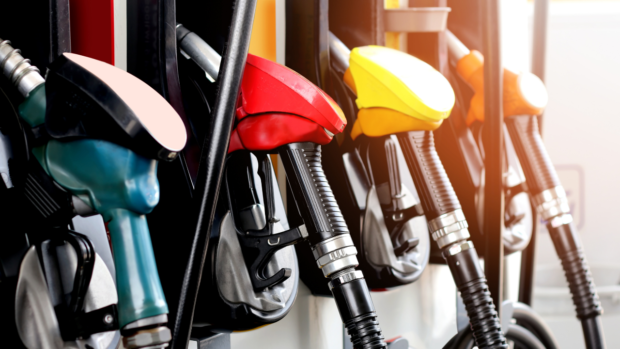
INQUIRER.net stock photo
MANILA, Philippines — Targeted subsidies to sectors most vulnerable to costly fuel will end this year, as sustained economic recovery next year would keep livelihoods afloat, President Ferdinand Marcos Jr.’s chief economic manager said.
Amid expectations of global oil prices remaining elevated in the near term, Finance Secretary Benjamin Diokno on Friday described moves to extend the ongoing cash aid, fuel subsidies, and discounts as “populist,” but conceded these will be given away to the bottom 50-percent income households, public utility vehicle (PUV) drivers and operators, as well as farmers and fisherfolk throughout this year as long as prices were high.
The previous Duterte administration had set aside a total of P47.5 billion in financial aid to those worst hit by skyrocketing oil prices: P41.4 billion in unconditional cash transfers to the poorest half of the population, amounting to P500 monthly for six months; P5 billion in fuel subsidies for PUVs; and P1.1 billion in fuel discounts to agricultural producers.
Budget Secretary Amenah Pangandaman said that to date, the Department of Budget and Management (DBM) already released P6.2-billion worth of targeted cash transfers covering the first tranche; P3 billion in fuel subsidies; P500 million to cover fuel discounts; as well as P7 billion for the service contracting program, or a cumulative P16.7 billion.
Pangandaman said the DBM had yet to receive a request from implementing agencies like the Department of Transportation (DOTr) for the next round of subsidies. “If we get to receive their further requests, we will try to evaluate, and, of course, this is contingent with the available funding.”
Diokno said these targeted subsidies will be funded by the windfall from the incremental import duties and taxes being collected from expensive oil, although he could not give an estimate of expected additional revenues.
Back in March, Department of Finance (DOF) estimates showed that at an estimated average global oil price of $110 per barrel this year, the Bureau of Customs (BOC) may collect an extra P26 billion in the 12-percent VAT.
The Cabinet-level Development Budget Coordination Committee (DBCC) pegged the price of Dubai crude oil to hover at $90-110 per barrel in 2022, before prices “normalize,” Diokno said, to $80-100 a barrel in 2023, and $70-90 per barrel from 2024 to 2028.
And with the economy expected to fully recover by the middle of this year, these subsidies would no longer be given away next year, Diokno said.
The DBCC also on Friday kept the record-high P5.268-trillion ceiling set by former president Rodrigo Duterte’s economic managers for the 2023 national budget proposal, the Marcos Jr. administration’s first full-year spending plan.
Next year’s budget will be just 4.9-percent larger than this year’s P5.02-trillion appropriations, which had risen by over a tenth from last year’s P4.51 trillion.
Pangandaman had said they would have wanted a “slightly” bigger 2023 budget, but only if government coffers could afford it. But former DBM officer-in-charge and Undersecretary Tina Rose Marie Canda had said that “for prudent fiscal management, we have to stick to a P5.268-trillion budget for 2023.”
The DBM will still tweak items within the budget cap and the composition of the national expenditure program (NEP) to reflect the Marcos Jr. administration’s priority programs and projects, as pitched by the new Cabinet secretaries, Pangandaman said.
Pangandaman said the national government’s priorities in next year’s budget included agriculture, infrastructure development, as well as the energy and power sector.
The DBM plans to submit the 2023 budget proposal to Congress on Aug. 22, maximizing the one-month period after the President’s State of the Nation Address (Sona) on July 25, as allowed by the Constitution, Pangandaman said.